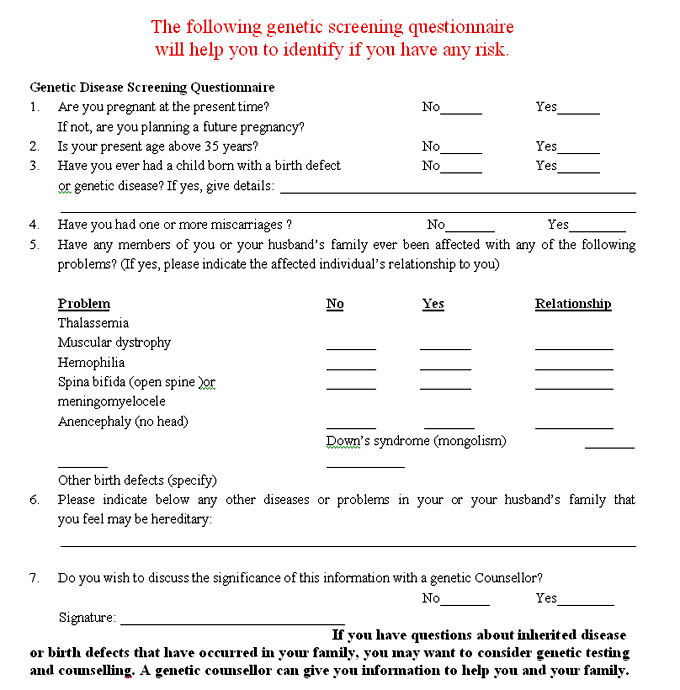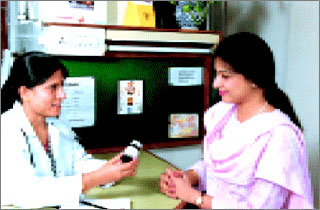Premarriage / Preconceptional Counselling Clinic
Emerging trends of preconceptional counseling: A step towards modern obstetrics
Dr. Sharda Jain, Dr. Jyoti Agarwal, Dr. Rashmi Jain, Dr. Indu Tyagi
Background: Four percent of all pregnancies are complicated by one or more major fetal malformation and 2% by genetic diseases, resulting in 1% miscarriage and 1% infant death. A significant no. of cases are potentially identifiable in the preconceptional and prenatal period. Preconceptional counseling aims to achieve an optimal conception and pregnancy outcomes. All problems of pre-existing diseases are screened.
Good pregnancy care begins before pregnancy. For an apparently normal, healthy couple planning a pregnancy there may be advantages in discussing this with a professional advisor. This can often be your family doctor or a gynaecologist. Several months before you get pregnant, take an appointment with your doctor.
Objective: To provide in-depth information about the profile of preconceptional counseling seekers.
Material and methods: A Prospective analysis of 67 couples who attended preconceptional counseling clinic from Jan. 2007 to April 2009
Profile of 67 patients who came for preconception counseling (PCC)
- History of BOH in family – 19
- No F/H of any problem – 11
- History of Heart diseases / Mangol baby / any other malformation – 10
- F/H Hypertension / DM / both – 9
- Patients taking OCP – 6
- Known Diabetics on insulin – 3
- Thalassemia trait – 3
- History of Haemophelia in brother – 3
- Rh negative wife –3
Conclusion: The most sensitive period of early fetal development is also the most neglected one mainly because of a late diagnosis of pregnancy and also because lack of awareness & nonavailability of preconceptional counseling clinics. An awareness of the availability & advantages of PCC will go a long way in improving the pregnancy outcome.
Check-List for pregnancy for every woman
Are you, or have you been, on the pill ?
It is best to stop taking the pill 3 months before you want to conceive to allow your body to return to normal cycle. There always remains a remote possibility of malformations in your baby as a result of hormonal pills. It is best to wait until you have had three menstrual periods after stoppage of pills before trying to become pregnant. You can use condom during this time to avoid pregnancy.
Do you have a long-standing medical condition ?
If you have a medical disorder such as diabetes, high blood pressure, heart disease, anaemia andepilepsyor rheumatic heart disease, you should talk to your doctor before trying to become pregnant. Your doctor may want to change your drug treatment, either because the drugs you are taking may affect the baby or they might make it more difficult for you to conceive.
Does your work bring you in contact with any risk ?
If you or your partner has a job that involves working with chemicals, lead, anaesthetics or X-rays, this may affect your chance of conceiving, or involve a risk to the baby, so talk to your doctor. It may be sensible to move to a safer job before you become pregnant, or at least avoid the risk as much as possible. Once you are pregnant you should take further steps to protect yourself.
Visual Display Units are now believed to cause no harm to the baby
Are you immune to Rubella ?
Rubella can cause serious defects to the baby if you have infection in pregnancy, especially early pregnancy, when the baby’s internal organs are developing. Ideally before you become pregnant, ask your doctor for a blood test to make sure that you are immune from the disease. If you are not, your doctor can give you a vaccination. Take the vaccine in advance as you should not try to become pregnant for at least threemonths after the vaccination.
All girls should be given rubella vaccine usually available as MMR vaccine (vaccine for mumps, measels and rubella) in place of just measles vaccine in childhood or before the marriagable age (before 14 years). Exclusive Rubella Vaccine (R-VAC) is also now available in India.
Do you or your partner have a family history of inherited diseases ?
Some medical conditions, such as Thalassemia and hemophilia are inherited. If either you or your partner has a close relative with an inherited disease, there is a chance that it might be passed on to your baby. See your doctor before trying to become pregnant, and if necessary one can refer you to a genetic counsellor who can assess the level of risk that you will be taking. It is reassuring to know that, in most cases, only if both partners carry the gene that causes the disease, the child runs a real risk of inheriting it.









